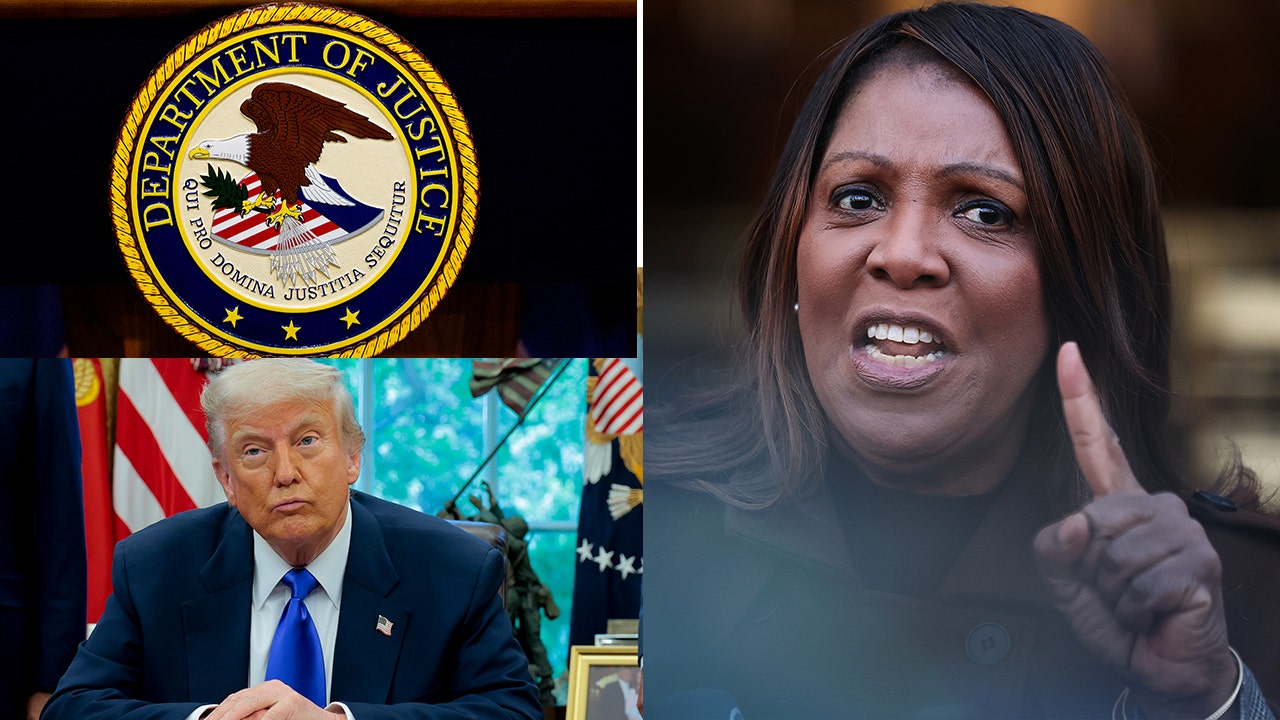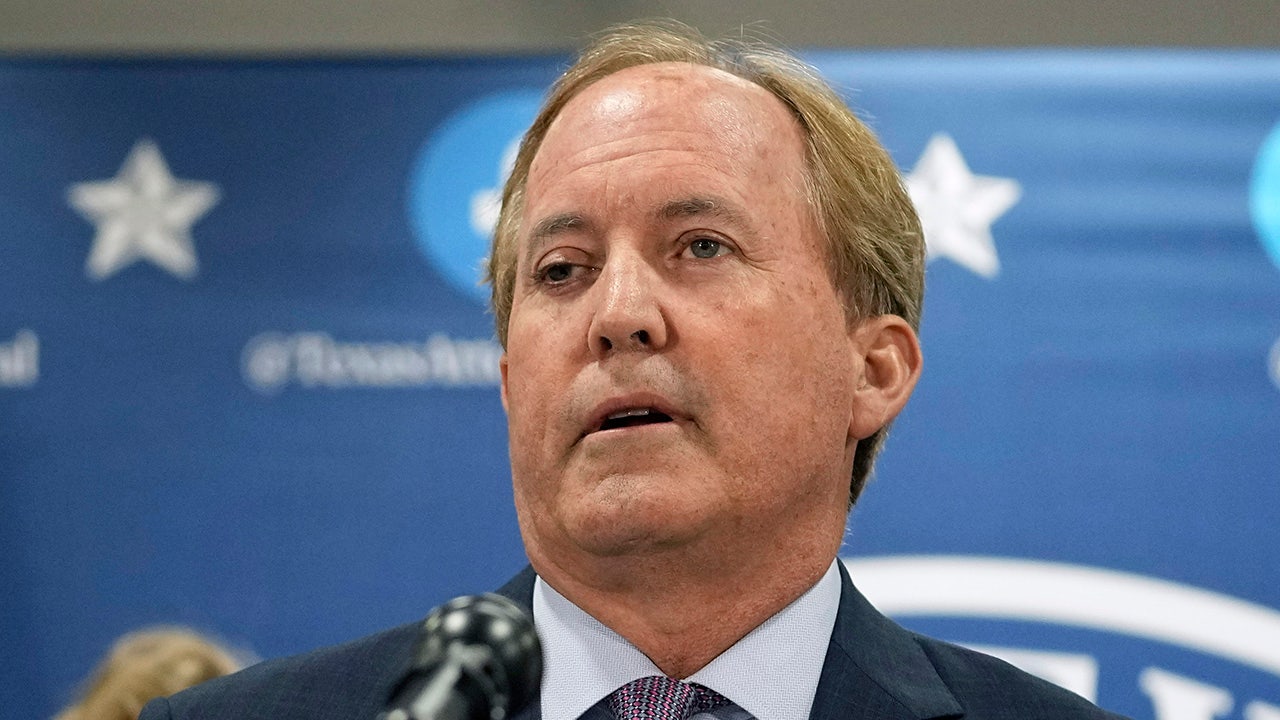Education
What Bills Did DeSantis Sign as He Propelled Florida to the Right?

Seeking to elevate his stock with his Republican base for his presumptive presidential candidacy, Gov. Ron DeSantis of Florida this year has checked off many boxes on a far-right wish list of laws restricting abortion rights, gender-transition care for minors and teaching about sexual orientation.
Expanding capital punishment and who can carry a concealed firearm in his state? Check. Targeting Disney? Check.
And he could soon remove a requirement that he resign as governor to run for president.
The frenzy of bill-signings and a culture-war agenda laid the groundwork for the candidacy of Mr. DeSantis, who is seeking to position himself as a viable alternative to former President Donald J. Trump, the G.O.P.’s front-runner and a onetime ally.
Here are the bills Mr. DeSantis has signed this year:
Six-week abortion ban
In April, Mr. DeSantis signed a law that bans abortions after six weeks of pregnancy, making Florida one of the nation’s most restrictive states for reproductive rights. As a result, the state will no longer be a destination for women from across the Deep South seeking abortions.
Emboldened by last year’s Supreme Court decision overturning Roe v. Wade, Republicans used their supermajorities in Florida’s Legislature to advance the measure. It replaced a 15-week abortion ban that Mr. DeSantis had signed in April 2022, before the nation’s high court abandoned 50 years of legal precedent on abortion.
But unlike the earlier ban, which Mr. DeSantis promoted with a bill-signing at a church, he ushered in the six-week ban in his office late at night without public notice, except for a group of supporters who joined him.
The law includes exceptions for rape, incest and to save the life of a mother. It won’t take effect until Florida’s Supreme Court decides a challenge of the 15-week restriction.
Banning transition-care for minors
In mid-May as he was finalizing his candidacy for president, Mr. DeSantis signed a measure outlawing gender-transition care for minors and restricting it for adults, the latest action by Republicans this year aimed at L.G.B.T.Q. communities in Florida.
It imposed a penalty of up to five years in prison for doctors who violate the ban and requires adults seeking gender-transition care to sign a consent form.
The teaching of “identity politics,” long a preoccupation of right-wing Republicans, is prohibited at public institutions under the law, which also weakened tenure protections.
In March, Mr. DeSantis gave conservatives another trophy, creating a universal school voucher program. Critics said that the $8,000-per-year benefit per student would undermine public schools and further enrich wealthy families because it does not have an income eligibility cap.
Death penalty
Abortion was not the only issue that Florida took a sharp right turn on this year: Capital punishment was another.
In April, Mr. DeSantis signed a bill that will substantially lower the threshold for imposing the death penalty. It will no longer require a unanimous vote by 12 members of a jury to sentence a person to die. An 8-to-4 majority would be enough under the new law, which is expected to face legal challenges from criminal justice reform groups.
The vast majority of the 27 states that allow the death penalty require unanimous sentencing votes by juries. Alabama is one of the exceptions: a 10-to-2 majority suffices. In cases of deadlocked juries, judges get to decide in Indiana and Missouri.
In Florida, Republicans pushed for the death penalty expansion after a jury last year handed down a life sentence to the man who murdered 17 people in the 2018 mass shooting at Marjory Stoneman Douglas High School in Parkland, Fla. Nine of the jury’s 12 members voted for the death penalty.
Concealed carry
Around the same time that a super PAC supporting Mr. DeSantis labeled Mr. Trump as a “gun grabber,” the governor signed a law in April that allows Floridians to carry concealed weapons without a permit.
As of July 1, gun owners will no longer be required to pass a safety course and a background check, a shift away from calls for tougher gun laws in the state after mass shootings in 2018 in Parkland and in 2016 at the Pulse nightclub in Orlando.
Mr. DeSantis and his allies have sought to cast Mr. Trump as squishy on the Second Amendment, with the super PAC suggesting that the former president “cut and run like a coward” on gun rights issues when he was in the White House.
Disney oversight and immigration
In an escalation of the hostilities between Mr. DeSantis and Disney, which Republicans have turned into an avatar of “woke” culture, the governor signed a series of bills targeting the company and its autonomy over a special taxing district that is home to Disney World.
The measure, which Republicans and the Florida Department of Law Enforcement claimed was needed for security reasons, will create a veil of secrecy over who is paying for the travel of Mr. DeSantis and how he is dividing his time as governor and a presidential candidate.
Even Mr. Trump has latched onto the issue, saying in a statement from his campaign in April that Mr. DeSantis was not being transparent about how much taxpayer money he was spending on travel.
Still, there is another bill awaiting Mr. DeSantis’s signature that is intertwined with his political ambitions. It would immediately eliminate a requirement that he resign as governor to run for president. He might not even need a pen: It will automatically take effect if unsigned.
Reporting was contributed by Nicholas Nehamas, Patricia Mazzei, Trip Gabriel, Nick Corasaniti and Brooks Barnes.

Education
Video: Opinion | We Study Fascism, and We’re Leaving the U.S.

I’m a historian of totalitarianism. I look at fascist rhetoric. I’ve been thinking about the sources of the worst kinds of history for a quarter of a century. “Experts say the constitutional crisis is here now.” ”The Trump administration deporting hundreds of men without a trial.” “A massive purge at the F.B.I.” “To make people afraid of speaking out against him.” I’m leaving to the University of Toronto because I want to do my work without the fear that I will be punished for my words. The lesson of 1933 is you get out sooner rather than later. I’ve spent a lot of time in the last decade trying to prepare people if Trump were elected once, let alone twice. “Look what happened. Is this crazy?” [CHEERING] I did not flee Trump. But if people are going to leave the United States or leave American universities, there are reasons for that. One thing you can definitely learn from Russians — — is that it’s essential to set up centers of resistance in places of relative safety. We want to make sure that if there is a political crisis in the U.S., that Americans are organized. ”We’ve just gotten started. You haven’t even seen anything yet. It’s all just kicking in.” My colleagues and friends, they were walking around and saying, “We have checks and balances. So let’s inhale, checks and balances, exhale, checks and balances.” And I thought, my God, we’re like people on the Titanic saying our ship can’t sink. We’ve got the best ship. We’ve got the strongest ship. We’ve got the biggest ship. Our ship can’t sink. And what you know as a historian is that there is no such thing as a ship that can’t sink. “The golden age of America has only just begun.” America has long had an exceptionalist narrative — fascism can happen elsewhere, but not here. But talking about American exceptionalism is basically a way to get people to fall into line. If you think that there’s this thing out there called America and it’s exceptional, that means that you don’t have to do anything. Whatever is happening, it must be freedom. And so then what your definition of freedom is just gets narrowed and narrowed and narrowed and narrowed, and soon, you’re using the word freedom — what you’re talking about is authoritarianism. Toni Morrison warned us: “The descent into a final solution is not a jump. It’s one step. And then another. And then another.” We are seeing those steps accelerated right now. There are some words in Russian in particular that I feel help us to understand what’s happening in the United States because we now have those phenomena. “Proizvol”: It’s the idea that the powers that be can do anything they want to and you have no recourse. This not knowing who is next creates a state of paralysis in society. The Tufts student whose visa was removed because she co-authored an article in the Tufts student newspaper. [DESPERATE YELLING] I thought, what would I do if guys in masks tried to grab my student? Would I scream? Would I run away? Would I try to pull the mask off? Would I try to videotape the scene? Would I try to pull the guys off of her? Maybe I would get scared and run away. The truth is, I don’t know. Not knowing terrified me. It’s a deliberate act of terror. It’s not necessary. It’s just being done to create a spirit of us and them. “Prodazhnost”: It’s a word in Russian for corruption, but it’s larger than corruption. It refers to a kind of existential state in which not only everything but everyone can be bought or sold. “Critics are calling this a quid pro quo deal between Adams and President Trump.” “I’m committed to buying and owning Gaza.” “He made $2.5 billion today, and he made $900 million.” There’s an expression in Polish: “I found myself at the very bottom, and then I heard knocking from below.” In Russian, that gets abbreviated to “There is no bottom.” “We cannot allow a handful of communist radical left judges to obstruct the enforcement of our laws.” What starts to matter is not what is concealed but what has been normalized. There is no limit to the depravity — ”President Trump did not rule out the possibility of a third term.” — and the sadism — “The White House released this video titled ASMR Illegal Alien Deportation Flight.” — and the cruelty that we are watching now play out in real time. “This facility is one of the tools in our tool kit that we will use.” You have to continually ask yourself the question, “Is this OK? Is there a line I wouldn’t cross? Is there something I would not do?” People say, oh, the Democrats should be doing more. They should be fixing things. But if you want the Democrats to do things, you have to create the platform for them. You have to create the spectacle, the pageantry, the positive energy, the physical place where they can come to you. Poland recently went through a shift towards authoritarianism. Unlike in Russia, unlike in Hungary, the media remained a place, in Poland, where you could criticize the regime. And as a result, democracy returned. The moral of Poland is that our democratic institutions — the media, the university, and the courts — are essential. You know you’re living in a fascist society when you’re constantly going over in your head the reasons why you’re safe. What we want is a country where none of us have to feel that way.
Education
A $5 Billion Federal School Voucher Proposal Advances in Congress

Advocates for private-school choice celebrated this week as a federal schools voucher bill moved closer to becoming law, a major milestone that eluded their movement during President Trump’s first term.
The House Republican budget proposal that advanced on Monday would devote $5 billion to federal vouchers for private-school tuition, home-schooling materials and for-profit virtual learning.
The program in the budget bill could bring vouchers to all 50 states for the first time, including Democratic-leaning ones that have long rejected the idea.
Supporters hailed the proposal as “historic” and a “huge win,” but some cautioned that there was still much legislative haggling ahead.
“Ultimately, every child, especially from lower-income families, should have access to the school of their choice, and this legislation is the only way to make that happen,” said Tommy Schultz, chief executive of the American Federation for Children, a private-school choice advocacy group.
Opponents of the proposal were stunned at its sweeping implications. While it is in line with President Trump’s agenda, it had been considered somewhat of a long shot to make it out of the House Ways and Means Committee, because of its cost.
The program is structured as a $5 billion tax credit, allowing donors to reduce their tax bill by $1 for every $1 they give to nonprofits that grant scholarships — up to 10 percent of the donor’s income.
The option to donate is expected to be popular with wealthy taxpayers.
The resulting scholarships could be worth $5,000 per child, reaching one million students. Any family who earns less than 300 percent of their area’s median income — which equals over $300,000 in some parts of the country — could use the funds, meaning a vast majority of families would be eligible.
The proposal could pass through the budget reconciliation process, and could become law with only 51 votes in a Senate where Republicans hold 53 seats.
In the wake of the Covid-19 pandemic, many Republican-led states passed new private-school choice laws, overcoming decades of resistance from teachers’ unions, Democrats and rural conservatives. Opponents have long argued that vouchers hurt traditional public schools, by decreasing enrollment and funding levels. And they have pointed out that lower-income neighborhoods and rural areas often have few private schools, making it difficult for many families to use vouchers.
“We are against giving people tax breaks to defund public schools,” said Randi Weingarten, president of the American Federation of Teachers, the nation’s second-largest education union.
She pointed out that while Mr. Trump and congressional Republicans have said they want to invest in work force education, artificial intelligence education and other priorities for student learning, they have consistently proposed cutting funding to public schools, which educate nearly 90 percent of American students.
“They don’t believe in public schooling,” she said. “What you’re seeing here is the fragmentation of American education.”
A boom in new private-education options, like virtual learning and microschools, has already changed the landscape — as has an influx of campaign spending from conservative donors, like the financier Jeff Yass, intended to build support for private-school choice.
Last month, Texas became the last major Republican-led state to pass such legislation. Advocates quickly shifted their focus to Congress and the opportunity to push a federal voucher bill.
Senator Bill Cassidy, Republican of Louisiana, is the sponsor of a Senate bill similar to the House proposal, and celebrated its inclusion in the budget package.
“Expanding President Trump’s tax cuts is about preserving the American dream,” he said in a written statement. “Giving parents the ability to choose the best education for their child makes the dream possible.”
But the proposal will still have to overcome opposition, on both the left and the right.
Advocates for public schools have said that the new generation of vouchers and education savings accounts, which are often available to relatively affluent families, are a subsidy to parents who can already afford private education.
In Florida, which has more children using vouchers than any other state in the nation, some public-school districts have experienced enrollment declines and are considering shutting down schools or cutting teaching positions.
Even some conservative parental-rights activists oppose the creation of a federal program, which they worry could create a regulatory pathway that could eventually be used to impose government requirements on home-schooling parents or private schools — for example, by requiring standardized testing, which is not mentioned in the current proposal.
“The federal government should extricate itself from K-12 education to the fullest extent possible,” said Christopher Rufo, a leading crusader against diversity programs in schools, and a supporter of school choice. “It’s best left to the states.”
Education
Harvard Letter Points to ‘Common Ground’ With Trump Administration

Harvard University struck a respectful but firm tone in a letter to the Trump administration on Monday, arguing that the university and the administration shared the same goals, though they differed in their approaches. It was latest move in an extraordinary back-and-forth between the school and the federal government in recent weeks.
The letter from Alan M. Garber, Harvard’s president, was sent a week after the Trump administration said it would stop giving Harvard any research grants.
Last month, the university took the government to court over what it has called unlawful intrusion into its operations. But on Monday, Dr. Garber’s tone was softer, saying he agreed with some of the Trump administration’s concerns about higher education, but that Harvard’s efforts to combat bigotry and foster an environment for free expression had been hurt by the government’s actions.
Dr. Garber said he embraced the goals of curbing antisemitism on campus; fostering more intellectual diversity, including welcoming conservative voices; and curtailing the use of race in admissions decisions.
Those goals “are undermined and threatened by the federal government’s overreach into the constitutional freedoms of private universities and its continuing disregard of Harvard’s compliance with the law,” Dr. Garber said in the letter to Linda McMahon, the secretary of education.
The university’s response came one week after Ms. McMahon wrote to Harvard to advise the university against applying for future grants, “since none will be provided.” That letter provoked new worries inside Harvard about the long-term consequences of its clash with the Trump administration.
“At its best, a university should fulfill the highest ideals of our nation, and enlighten the thousands of hopeful students who walk through its magnificent gates,” Ms. McMahon wrote. “But Harvard has betrayed its ideal.”
Rolling through a roster of conservative complaints about the school, Ms. McMahon fumed about the university’s “bloated bureaucracy,” its admissions policies, its international students, its embrace of some Democrats and even its mathematics curriculum.
Ms. McMahon referred to Harvard as “a publicly funded institution,” even though Harvard is private and the vast majority of its revenue does not come from the government. She suggested that the university rely more on its own funds, noting that Harvard’s endowment, valued at more than $53 billion, would give it a “head start.” (Much of Harvard’s endowment is tied up in restricted funds and cannot be repurposed at will.)
“Today’s letter,” Ms. McMahon wrote, “marks the end of new grants for the university.”
In Dr. Garber’s letter on Monday, he said that the university had created a strategy to combat antisemitism and other bigotry, and had invested in the academic study of Judaism and related fields. But he said the university would not “surrender its core, legally-protected principles out of fear of unfounded retaliation by the federal government.”
He denied Ms. McMahon’s assertion that Harvard was political.
“It is neither Republican nor Democratic,” he said of the university. “It is not an arm of any other political party or movement. Nor will it ever be. Harvard is a place to bring people of all backgrounds together to learn in an inclusive environment where ideas flourish regardless of whether they are deemed ‘conservative,’ ‘liberal,’ or something else.”
Although Harvard is the nation’s wealthiest university by far, officials there have warned that federal cuts could have devastating consequences on the campus and beyond. During Harvard’s 2024 fiscal year, the university received about $687 million from the federal government for research, a sum that accounted for about 11 percent of the university’s revenue.
The government can block the flow of federal money through a process called debarment. But the procedure is laborious, and the outcome may be appealed. Experts on government contracting said Ms. McMahon’s letter indicated that the administration had not followed the ordinary procedure to blacklist a recipient of federal funds.
Harvard officials are aware that, even if they challenge the administration’s tactics successfully in court, Mr. Trump’s government could still take other steps to choke off money that would be harder to fight.
The federal government often sets priorities for research that shape agencies’ day-to-day decisions about how and where federal dollars are spent. Some academics worry that the government might pivot away from fields of study in which Harvard has deep expertise, effectively shutting out the university’s researchers. Or the administration could simply assert that Harvard’s proposals were incompatible with the government’s needs.
Jessica Tillipman, an expert on government contracting law at George Washington University, said that it can be difficult to show that the government is using a back door to blacklist a grant recipient.
“You basically have to demonstrate and point to concrete evidence, not just a feeling,” she said.
Still, she said, Ms. McMahon’s letter could offer Harvard an opening to contest a protracted run of grant denials.
“It’s not as hard to prove,” Ms. Tillipman said, “when you have a giant letter that said, by the way, we aren’t giving you these things anymore.”
-

 Austin, TX1 week ago
Austin, TX1 week agoBest Austin Salads – 15 Food Places For Good Greens!
-

 Technology1 week ago
Technology1 week agoNetflix is removing Black Mirror: Bandersnatch
-

 World1 week ago
World1 week agoThe Take: Can India and Pakistan avoid a fourth war over Kashmir?
-

 News1 week ago
News1 week agoReincarnated by A.I., Arizona Man Forgives His Killer at Sentencing
-

 News1 week ago
News1 week agoWho is the new Pope Leo XIV and what are his views?
-

 Politics1 week ago
Politics1 week agoDepartment of Justice opens criminal investigation into NY AG Letitia James
-

 World1 week ago
World1 week agoNew German chancellor aims for stronger EU ties with France and Poland
-

 News1 week ago
News1 week agoJudge Orders Release of Rumeysa Ozturk, Tufts Student Detained by ICE













